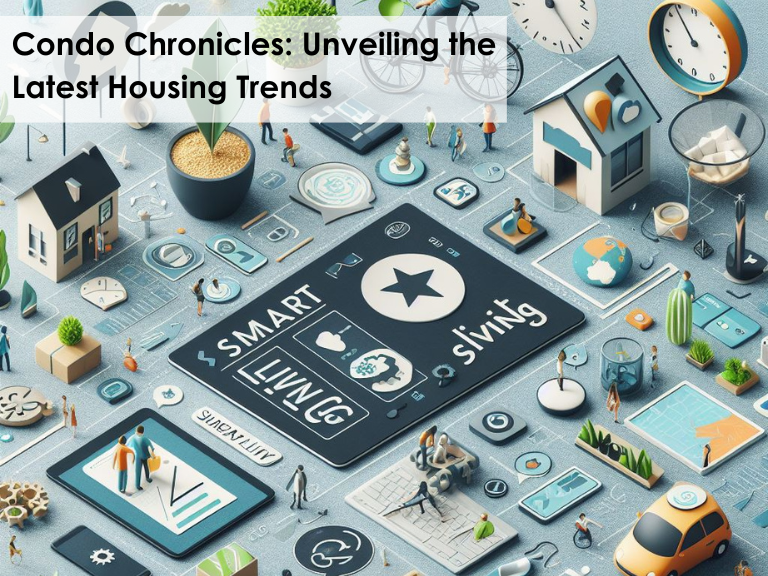Hidden Costs & How to Avoid Them | Pre-Construction Edition
BY Reilly Beesley/November 1, 2022

The irony of buying a pre-construction is that there are some unexpected costs you can expect to run into. Silly, we know, but that’s the nature of pre-construction. Pre-construction is a big investment for many reasons. Not only is it a financial commitment, but you do not have a tangible home for potentially several years. Due to the nature of pre-construction, there may be some unexpected costs. While it’s not fun to run into these costly little (or sometimes big) surprises knowing that they may come up and what you can do to minimize them definitely helps.
We’re going to break down what these pre-construction unexpected costs look like and how you can avoid or minimize them.
What are the unexpected costs in a pre-construction?
When looking at pre-construction builds know that closing costs are different for every condo. Experts suggest to budget around 1.5-4% of the total house cost in closing fees.
Development Charges
Also referred to as development levies, development charges are fees that are charged by the local municipality to the developer. These fees go towards various things that the city will need with the implementation of more residential builds, including things like schools, transportation, parks, and the like. You may see these fees broken into education levies, public art levies, park levies, and “municipal charges”. Development charges are not charged by the city until closing day on your property. Depending how long the build takes, this may be several years later. In this time, it is quite likely that the development charges will continue to climb. Because of this, it is wise to get this fee capped. More on this below!
Legal Fees
Depending on where you are, when you buy real estate, you must have a lawyer to complete the legal portion of the sale. And, of course, with this comes a fee. These fees vary depending on the lawyer and the complexity of the sale, but typically can run you anywhere between $500 and $1,500.
Land Transfer Tax
When you buy property, you are required to pay a land transfer tax on it to the provincial government. Your land transfer tax will typically make up the majority of your closing costs. The amount required to pay will vary based on where you live and the value of the property you are purchasing. There are various land transfer tax calculators to give you an idea of what you will have to pay based on what you are purchasing.
Tarion Warranty
When you purchase a new build, you will get a Tarion Warranty. This is essentially a warranty that protects certain aspects of your new build. What is included can vary but will usually include things like protection against deposits, defects in work and material, structural defects, and compensation for construction delays and occupancy. This warranty will run you about $600 to $1000.
Utility Hook Ups
Because you’re moving into a brand new build you typically are responsible for the initial hook up for all of your utilities. This includes hydro, gas, and water. The charge for these installments will vary depending on the company and if they are installed together or separately.
Miscellaneous Fees
And of course, there are always those little random fees and charges that will pop up here and there. These may include insurance fees, law society fees, mortgage discharge fees, status certificate fees, and so on. You can typically expect around $1000 for these miscellaneous fees.
How to minimize and avoid these extra costs

Okay, we talked about what the unexpected fees to expect are and some rough estimates. Now we’re going to share our top tips to keep these fees as low as possible.
Get as many of the closing costs capped as possible
We touched on it above, but one closing cost you will want to get capped ASAP are your development charges. Because these fees are always increasing and if you’re buying a build that won’t be completed for a couple of years, you can expect to be paying much more (think double to triple) on these fees than whatever they currently are.
When looking for your pre-construction condo, look for developers who offer the incentive of having a capped development charge. Capped development charges by the developer means that you and the developer can agree on this cost that you will be paying on closing day. This way, when you come to close on your unit, however long later, you already know what you will be paying in development charges.
Do your research on the developer
With an undeniable surge of condos in metropolitan areas has come a surge in developers. Do some research and find a repeatable developer with a good history. Purchasing a pre-construction is a big investment. Things you’ll want to look out for include proven developers who can provide on-time completion and transparency in their builds. This is what you want to be looking for in a developer to run into as little unexpected costs and surprises as possible.
Understand the contract and the conditions of the sale
This is where you may want a lawyer to help strip away the real estate jargon and tell you exactly what the conditions of the sale are. While this is important when it comes to purchasing any home or condo, it is particularly important when it comes the purchase of a pre-construction. What happens if the price of materials skyrockets? Or the builder can’t finance the entire build because units haven’t sold? Part of the risk of a new build is that these are all things that could very much happen. That is why understanding the contract and conditions of the sale is imperative.





